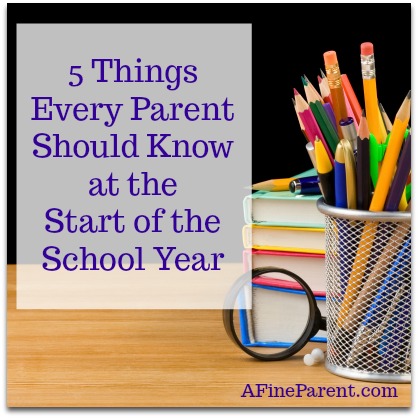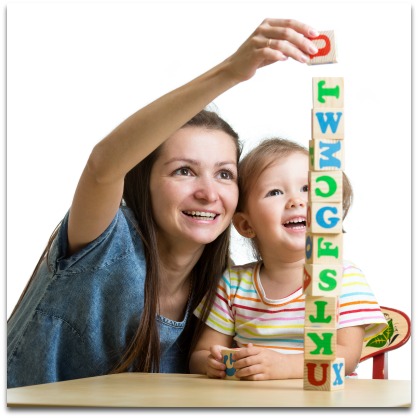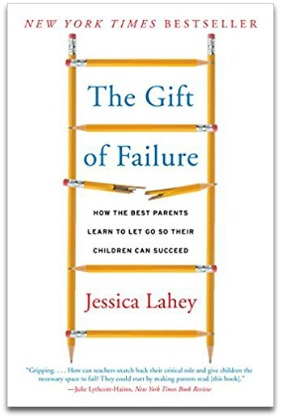 The days are getting shorter. Ads for notebooks and backpacks are showing up in my inbox. Amazon sent me a personal invitation into their #2 pencil emporium. The frenzy of summer is coming to a close and a whole different frenzy is about to begin.
The days are getting shorter. Ads for notebooks and backpacks are showing up in my inbox. Amazon sent me a personal invitation into their #2 pencil emporium. The frenzy of summer is coming to a close and a whole different frenzy is about to begin.
It’s the start of the School Year.
Nooooooo! My children cry in horror, seeing a crisp, new notebook peeking out of our shopping bag.
For some of us this is old hat. We’ve been there. Done that. Got the t-shirt.
For others, this is the first time you are sending your precious babies out into the cold, cruel world of school.
As a mom of 9 and 12 year old boys and the Director of Admission of a preschool, I’ve seen this day from many different sides and angles. Here are 5 bits of wisdom that we, the teachers and school staff, would like every parent to know irrespective of whether this is your first ever first-day-of-school, or you are a practiced veteran.
1. Keep Calm and Carry On
For a majority of children, the first day of school is filled with excitement and anxiety. Often, they are also nervous. And this is totally normal.
Whether this is their first day ever in a school setting, or they are switching schools, or just moving up a grade in their old school, the first day has a lot of unknown elements. New classroom. New friends. New teacher. New subjects. New expectations. New everything.
However, I can tell you that very often, the parents I see are far more nervous than the children.
They are jittery and uncertain. Some of them practically vibrate with anxiety. They don’t know what to do or where to go or when to leave. In case of preschoolers, sometimes, the parents don’t know even IF they should leave.
And kids pick up on that.
The more nervous you are, the more nervous your kids get about school. (Or the doctor’s office, or visiting Aunt Gladys, or going on a trip.) They pick up on all our emotions and mirror those emotions back to us.
I always recommend that parents practice some self-care before start of the school year. Meditate. Get a good night of sleep. Take deep breaths. Repeat to yourself, “This will all be okay.” And feel free to have a good cry in the car.
And while we are talking about crying, yes, some kids will cry that first day – no matter how old they are. And little ones may continue to cry the second, third or the fifteenth day. But they do stop crying. Often within 5 minutes of when you leave.
It’s awful when your last view of your child that first day is a face that is red and streaked with tears. Or one close to tears that your “big” girl or boy is stoically managing to hold in.
But please know that we, their teachers, stem those tears and help them make friends in their class. And in no time, your child will be racing into their classroom without even looking back at you.
Which brings me to Point #2…
2. Your Teacher is Going to Love Your Child
 Really. We are going to absolutely adore your little boy and girl. There is nothing that I and my teachers want more for your child than to be happy and feel loved and safe and to develop a love of learning.
Really. We are going to absolutely adore your little boy and girl. There is nothing that I and my teachers want more for your child than to be happy and feel loved and safe and to develop a love of learning.
I have found this true of almost every teacher I have encountered. They want your child to learn and to love learning. They want to know your child and see them blossom into wonderful people.
It’s why they went into teaching in the first place.
Believing in the teacher’s positive regard for your child will help you as a parent to step back and let your child develop their own relationship with their teacher.
In an article on PBS.org, counselor Linda Lendman says, “This is one of the first relationships with an adult your child may have outside the family unit. If you take a back seat and let the relationship develop without much interference, a special bond may develop.”
Year after year, developing this unique bond with each new teacher, teaches them about building relationships with other adults. It tells them what a positive adult-child relationship should be. It shows them that it’s not just their parents who will be there to guide and care for them.
3. Write a Story
One thing I tell all my new parents at the preschool is to help your child write a positive story about their first day at school.
I’m not talking about sitting down and physically writing a story about a little boy or little girl who is going to school. This kind of story is written by cozying up to them at bedtime or in the morning and having quiet, wandering talks with them.
It helps if they have met their teacher or visited the school during orientation. From the time my boys started pre-school till today, I lay down with my boys before the first day of school and remind them about how nice their new teacher seemed. I talk to them about the nice things they saw. They tell me everything they are looking forward to during the new year.
This will work not only for preschoolers and kindergarteners, but it also helps your brand new middle and high schoolers. Of course, your high schooler might not be willing to cuddle with you, but try taking a walk or going on a long drive with them instead. I have the best conversations with my teen while we are out for a walk.
4. Make Success a Routine
 Successful people have a routine. Why? Because having a routine builds good habits and reduces the amount of energy needed to figure out what to do next. Lots of people find that having a morning and evening routine propels them forward into having a good day.
Successful people have a routine. Why? Because having a routine builds good habits and reduces the amount of energy needed to figure out what to do next. Lots of people find that having a morning and evening routine propels them forward into having a good day.
For kids, having a routine is doubly important. A routine – knowing what comes next in their day – gives children a sense of safety. It encourages them to take charge and be independent within those routines.
It also reduces nagging from Mom and Dad. Jimmy knows that when he gets out of bed he is to get dressed and then go to the kitchen for breakfast. Even the 18-month-olds in my preschool know that after snack they get their diapers changed or sit on the potty and then change their shoes to go outside to play. So, no matter how old your kids are, start working on establishing those routines asap.
The two most horrifically difficult times in my house are bedtime and wake-up time. I found the easiest way to end all those morning battles is by having a routine established before the first day of school.
A few days before the first day of school we start trying to head towards what will be their regular bedtime and waking up time. They whine and complain and accuse us of being party-poopers, but when that first day of school comes around getting them into and out of bed is so much easier. Which makes falling into the full school routine with homework and after school activities that much easier.
Taking time to establish a solid morning and after school routine will save you oodles of time in the future. Wake up, dress, have breakfast, brush teeth. Once it’s part of the routine each task snowballs into the next. And the fights are (mostly) non-existent.
5. Grades Aren’t Everything
Last year I got way too caught up in my boys’ grades. Did you get an A on this? Why didn’t you get 100% on that? I just knew that they were smart enough to get all As. More than that I wanted their teachers to validate my belief that they were smart.
I was in deep. Realllly deeeep.
During this summer though, I unearthed my 7th grade report card in a box of stuff that my mom had sent me. There were barely any A’s.
Yet, I didn’t remember feeling stupid or like I was a bad student in middle school. In fact, I remember learning a lot and feeling really smart. Could it be that the grades I received didn’t actually reflect how much I had learned?
Grades and learning are two separate things.
 In her book, The Gift of Failure, Jessica Lahey writes, “Learning is the key to understanding our world, and the universe beyond… Grades are the key to certain academic institutions and a few office doors.”
In her book, The Gift of Failure, Jessica Lahey writes, “Learning is the key to understanding our world, and the universe beyond… Grades are the key to certain academic institutions and a few office doors.”
It occurred to me that a majority of my grades and my son’s grades represented our executive functioning levels – turning in homework, self-discipline in class, and how well we were able to express our thoughts – and not how much we actually learned in the class.
When I spoke to him I found that he had actually learned a ton in his classes. He was proud of how much his writing had improved. He could tell me in great detail about water testing and ecosystem science. He was able to explain Algebra in a way that his little brother could understand.
Grades are only one very small indicator of how smart he is and tell me very little about how far he’s going to go in life. Consequently, I’m going to approach this school year with the focus on learning, instead of grades. I hope you do too.
2-Minute Action Plan for Fine Parents
As the saying goes, an ounce of prevention is worth a pound of cure. Take just two minutes to figure out what kinds of routines are the best for your family.
Think about the morning and the evening. What is going to help your child relax and get them to melt into the bed every night? What needs to happen in the morning before you and the kids can make it out the door?
How can you prepare your child for their first day of school now? Remind them of all the neat things they saw in their new school. Make a story about what they will learn and the books they will read and the kinds of kids they might meet.
Long-Term Action Plan for Fine Parents
School is a long-haul commitment. Between kindergarten and college, you have 13 fun-filled years to go.
For all of these 13 years you and your child are going to have many different relationships to forge and manage. Everything from parent-to-teacher-to-student relationships, to student-to-student relationships, to student-to-school work relationships.
It takes a lot of practice to figure out how best to handle this. And then still more practice to let your child learn how to handle this on their own.
Think, and journal, about times you needed your parents help. What did they do and say? How did that help? And about the times when you handled things on your own. How did you wish your parents had acted in these situations?
While you have your journal open write down what grades mean to you. What do you think they represent? If you don’t happen to have a straight-A student, how are you going to handle that? What kind of learning did your child achieve last year? What are your hopes for them this year? What do you want for them 20 years down the line?
Resolve to make this a great school year for your kids. And start it with a bang! Good luck!
Great article! As a writer for Christian book publishers, I’ve found that the principles of self-care, establishing routines, and focusing on personal growth can also apply to parenting. Just as a polished manuscript reflects a writer’s true voice, a supportive environment helps children thrive academically and personally. Thanks for the valuable tips!
Another First Day of School is here. The kids are off, nervous and excited. They left me at home, in a house that hasn’t been quiet in three months.
Everything is written correctly, but it is important to remember that it is difficult only at the very beginning then you get used to it and everything becomes much easier and more interesting. I especially liked the advice that it is very important to stay calm. This is for sure, because during the school year you will have to spend a lot of energy and nerves on complex homework. On my own I recommend on pickthewriter.com choose a writing service that will help to cope with the difficulties of learning.
Truly grades ain’t everything, I believe in mapping out success. Thanks for this timely article. You will teach me how to write. 😂 😂 😂
You are so welcome! Thank you for your flattering compliment on my writing!
From Africa here, parents and kids have so much anticipated for school resumption and it certainly a good one.
Thank you!
parents should also give importance to child aims. and I want to say that your blog is awesome for parents guidance.
I agree. It is important to support your child’s interests. How to do that without running yourself and your child ragged might be a great topic for another article!
The first day at school is really very exciting for both parents and the child. To remain calm, one of the best tips in this case. In the end, you yourself went through it. Of course, children are different, someone can take it very calmly, the other will be excited. Your main task, as a parent, is not to stain the situation. I would not advise you to take the success of your child’s studies categorically. Both positive and negative results can be very deceptive in these early days. Of course, we all want our children to get A+, it’s not the main thing in these moments 🙂
I love this thought! If we look at the question of “what is success?” differently we might be able to find our children are having many successes right along with their failures!
I was homeschool from 6th to 12th grade and that last point is true. Learning is completely the opposite from grades. I usually can find out if my kid is learning by sitting down with her and looking at how she completes her homework or by taking a quick skim of her classroom lectures. You also need to remember that in the end the kid will really choose his own path as far as his major in life is concerned. So, just because you rear him or encourage him to be a doctor or engineer IT DOES NOT MEAN that is what God has built him to want or do in life. He may end up not going to school but being a really great entrepreneur and building his own company. I believe it is mostly about morals self-esteem… also about routine.
This is so true. Our children will choose their own path. And they will be successful if we let them find their passions and stop focusing so much on grades.